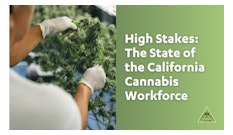

State Sen. Nancy Skinner introduced legislation Feb. 11 to loosen some of those constraints by expanding resources to help city and county governments that don’t have the wherewithal to oversee legal cannabis operations, she said in a release about her bill. S.B. 398 would allow local jurisdictions access to a state program that would manage certain bureaucratic functions for them, like enabling businesses to obtain licenses through the state.
“Californians legalized cannabis four years ago, yet the state is still plagued by a multi-billion-dollar illicit cannabis market,” Skinner said in the release. “Why? Too many cities and counties don’t have the bandwidth to set up cannabis licensing and regulations. S.B. 398 will help cities and counties greenlight legal cannabis by allowing cannabis businesses to get their local licenses through the state.”
In November 2016, Californians approved Proposition 64, The Control, Regulate and Tax Adult Use of Marijuana Act, by a 57.1% majority, legalizing adult-use cannabis statewide. The proposition was intended to reduce the illicit market with an above-ground legal playing field that ensures the production and sale of safe, regulated cannabis, Skinner said.
But the Legislative Analyst’s Office (LAO)—a nonpartisan fiscal and policy research institute for California’s legislature—estimates that adult-use cannabis businesses operate in less than one-third of jurisdictions statewide, which, in part, is because of the complicated regulatory framework Proposition 64 requires local governments to administer, the congresswoman said.
RELATED: California’s Cannabis Industry Marred by Limited Supply Chain and Heavy Tax Burden
According to a 2020 study prepared by Applied Development Economics, Inc., a consulting firm based out of Lafayette, Calif., the state’s taxable retail cannabis sales totaled about $2.1 billion in 2019, based on excise tax receipts. Meanwhile, the addressable cannabis market (legal and illegal cannabis sales) in California totaled about $7.9 billion, according to the study. Take the difference between those two figures, and the illegal cannabis market made up about three-fourths of the existing cannabis sales at that time.
By relieving cities and counties of regulatory responsibilities, if they opt to take part in the state program, S.B. 398 is designed to grow the state’s legal cannabis market and boost cannabis tax revenues while slashing the illegal cannabis market, Skinner said.
According to the LAO, California collected roughly $900 million in cannabis tax revenue in the past year. If signed into law, Skinner’s proposed legislation is expected to generate up to an additional $1 billion in state revenue, with a portion of the state tax on cannabis sales slated to be shared with the cities and counties that decide to take part in the state program, according to the release.
“Prop. 64’s good intentions to bring cannabis sales above ground and generate healthy tax revenues are undermined when cannabis businesses can’t get a license,” Skinner said. “With S.B. 398, California will be able to deliver on Prop. 64’s promise.”



























